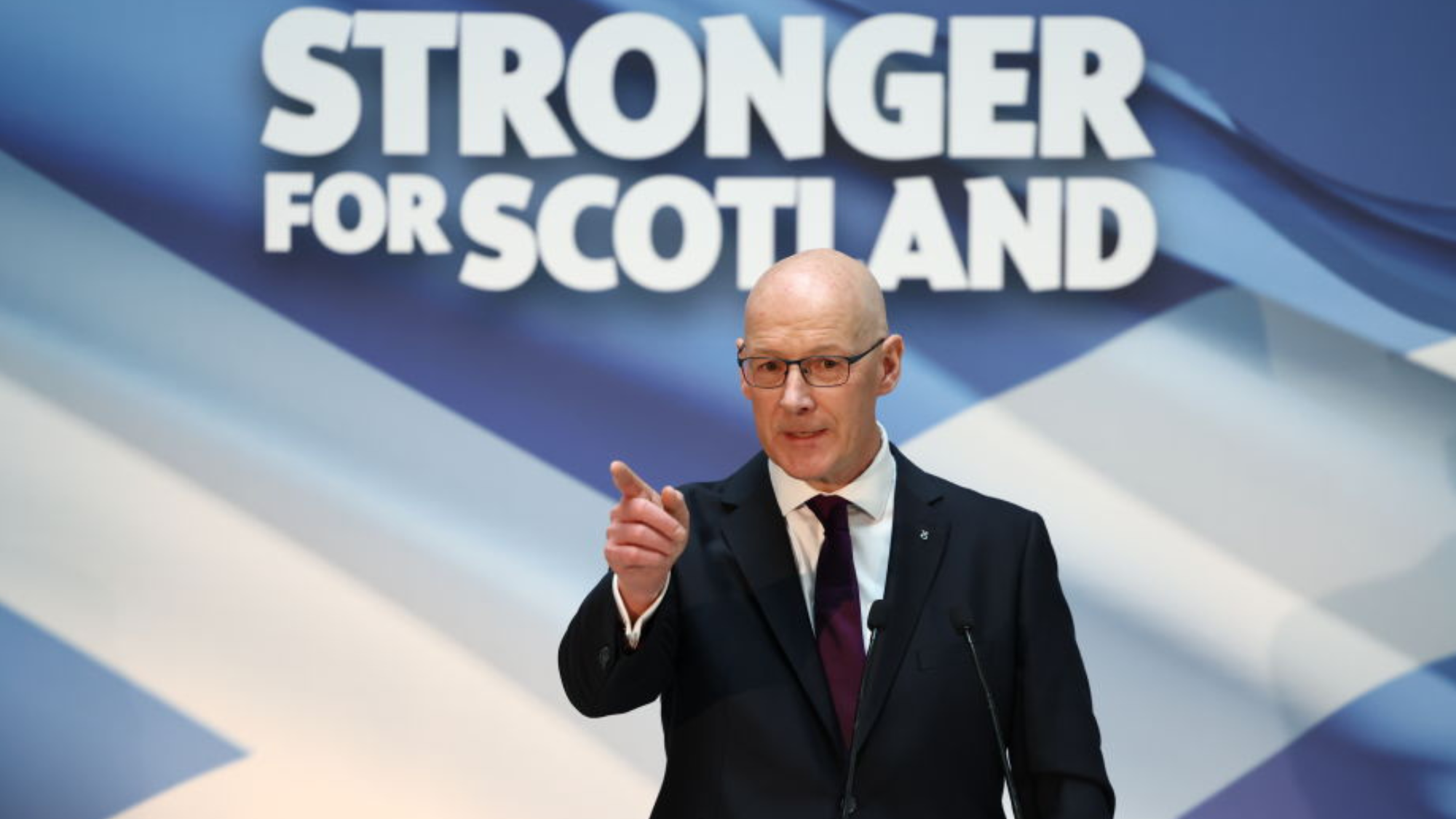What will John Swinney do for Scotland's independence movement?
New first minister promises 'stability' for SNP, but some say outlook is 'bleak' for Scottish independence

A free daily email with the biggest news stories of the day – and the best features from TheWeek.com
You are now subscribed
Your newsletter sign-up was successful
"I have changed." So declared John Swinney, the new SNP leader, when he was sworn in as Scotland's First Minister on Monday – after winning the backing of 64 MSPs, a narrow majority. Swinney said that he would discard the partisan politics that had dominated the SNP and Holyrood in recent years, and take a more collaborative approach.
The new First Minister has a reputation both as a "deal-maker who can work across parties" and as "a ferocious heckler of opponents", said Kieran Andrews and John Boothman in The Times; he promised that there would be no more "shouted put-downs from the front bench or heckling from a sedentary position". Swinney's path to the leadership was cleared when his main competitor, Kate Forbes, stepped aside.
He is seen as a "safe pair of hands", said Simeon Kerr in the FT, the most likely candidate to unite a party in disarray following Nicola Sturgeon's 2023 resignation and the collapse of its coalition with the Greens under Humza Yousaf.
The Week
Escape your echo chamber. Get the facts behind the news, plus analysis from multiple perspectives.

Sign up for The Week's Free Newsletters
From our morning news briefing to a weekly Good News Newsletter, get the best of The Week delivered directly to your inbox.
From our morning news briefing to a weekly Good News Newsletter, get the best of The Week delivered directly to your inbox.
'Bleak' prospects
"The coronation of John Swinney, a 60-year-old yesterday's man" is "bleak news for the independence movement", said Iain Macwhirter in The Spectator. When Swinney was last the party leader, early this century, he took the SNP to 20% in the 2003 European elections. In the 2004 general election, the SNP won six MPs to Labour's 41. "That was his legacy."
It was surely a bad idea, said John Gray in The New Statesman, to choose a second "continuity candidate" after Yousaf's brief reign. Swinney has served, in recent years, as finance secretary, education secretary and deputy first minister. The SNP's problem is that, under Sturgeon, it "lost itself in hyper-liberalism". Instead of addressing Scotland's "long-standing failings in healthcare, education and the economy", the party became "fixated" on causes such as transgender rights, anti-racism and "net-zero cultism", wasting political capital on the ill-fated Gender Recognition Bill, and the chaotic hate-speech legislation.
Swinney has a cheek, too, to pose as a bipartisan peacemaker, said Euan McColm in The Scotsman. The First Minister conceded that he had, in the past, "contributed" to the toxic mood of Scotland's politics. That's "quite the understatement": Swinney was "one of the architects of an SNP strategy that has demonised opponents, accusing critics of government failure of attacking Scotland herself".
A stable bet
Well, Swinney has proved a peacemaker so far, said Dani Garavelli in The Guardian. He persuaded Forbes to throw in her lot with him, by promising to make her deputy first minister. And now, leading a minority government, he is well aware that he'll be able to do nothing without "building vote-by-vote alliances".
A free daily email with the biggest news stories of the day – and the best features from TheWeek.com
He says he'll prioritise "bread and butter issues": the cost-of-living crisis and child poverty will come ahead of a second independence referendum. Swinney is not a bold visionary who will lead Scotland to independence. "But he is the man best placed to restore stability."